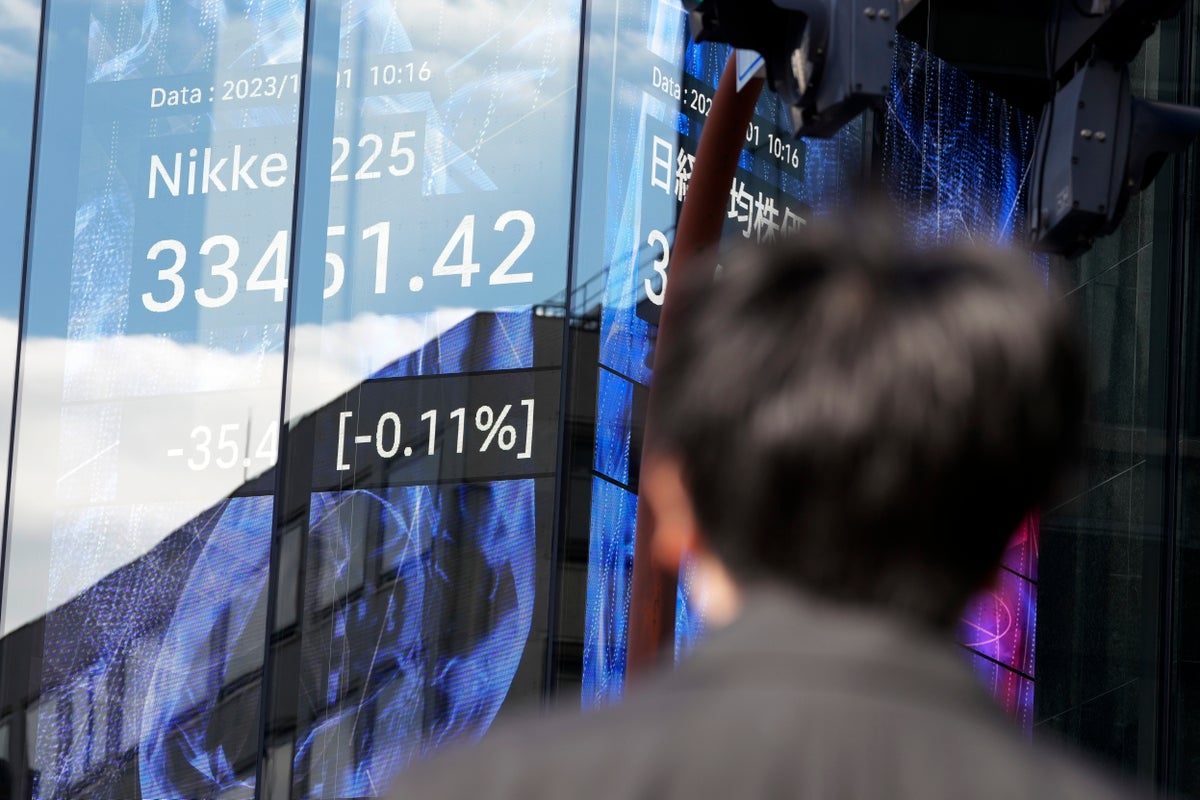
World shares were mixed on Friday after Wall Street closed out its best month of the year with big gains in November.
Germany’s DAX rose 0.6% to 16,309.89 and the CAC 40 in Paris added 0.5% to $7,348.88. Britain’s FTSE 100 was up 0.8% at 7,512.94.
The future for the S&P 500 edged 0.1% lower while that for the Dow Jones Industrial Average gained 0.1%.
In Asian trading, Hong Kong’s Hang Seng dropped 1.2% to 16,838.89, hovering around a one-year low, while the Shanghai Composite index edged up 0.1% to 3,031.64.
A private sector survey released Friday showed Chinese manufacturing activity unexpectedly expanded in November, marking the fastest growth in three months. That report by Caixin contradicted an official one released the day before that showed weak factory demand.
Tokyo’s Nikkei 225 index edged 17 points lower to 33,431.51 after a similar private-sector survey showed Japan’s manufacturing contracting in November at the fastest pace in nine months.
South Korea’s Kospi lost 1.2% to 2,505.01. Australia’s S&P/ASX 200 sank 0.2% to 7,073.20. India’s Sensex gained 0.8% and Bangkok’s SET was 0.1% lower.
Thursday on Wall Street, the S&P 500 rose 0.4% and the Dow Jones Industrial Average jumped 1.5%. The Nasdaq composite dropped 0.2%. All indexes posted solid gains for the month.
Markets marched steadily higher for much of November as investors grew hopeful that the Federal Reserve is finally done raising interest rates, which fight inflation by slowing the economy. Those hopes got more support with a report that the Fed’s preferred measure of inflation cooled last month.
The Fed’s aggressive rate hike policy pushed its benchmark interest rate from near zero in 2022 to its highest level in two decades by the middle of 2023. The goal has been to tame inflation back to the Fed’s target rate of 2%.
Wall Street is betting that the central bank will continue to hold rates steady at its December meeting and into early 2024, when it could start considering cutting interest rates. Fed officials have hinted at those possibilities, while also saying any future moves will be based on economic data.
The latest data on economic growth and consumer confidence have also raised hopes that the Fed will achieve its sought-after “soft landing,” which involves cooling the inflation without throwing the economy into a recession.
The yield on the 10-year Treasury, which influences mortgage rates, slipped to 4.31% early Friday from 4.34% late Thursday.
Oil prices climbed following the latest extension of OPEC’s production cuts.
U.S. benchmark crude oil fell 3 cents at $75.93 a barrel in electronic trading on the New York Mercantile Exchange. It lost $1.90 on Thursday to $75.96 a barrel.
Brent crude, the international standard, shed 13 cents to $80.73 a barrel.
In currency dealings, the dollar slipped to 147.84 Japanese yen from 148.20 yen. The euro rose to $1.0895 from $1.0890.







